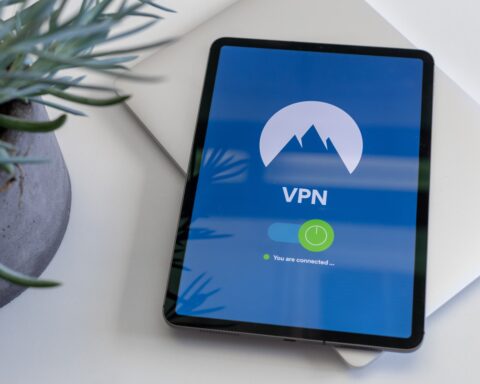The unemployment number in cybersecurity is almost zero and that might not change anytime soon. The world is progressively becoming more digital and as a consequence, there is an increase in cybercrime. If you want to work in this field, this guide lists seven high-paying remote cybersecurity jobs you could apply for in 2020.
Cybersecurity Analyst
As a cybersecurity analyst, your job is to monitor the systems and networks of an organization. You detect weaknesses and cyber threats and devise the appropriate methods to protect the organization.
Security analysts also run routine vulnerability scans and assessments. They do these to identify network vulnerabilities which allows them to stay ahead of threats. These analysts plan and recommend changes to increase the security of the network. Also, they apply security patches to protect the network. Security analysts are very essential to a company as much lies in their hands to protect the integrity of their systems.
Cybersecurity analysts often monitor systems located in several locations all over the world. So working remotely is an option. A security analyst earns an average of $98,350 yearly. That makes it a very attractive job for remote workers.
Cybersecurity Engineer
With an average yearly pay of $106,000, cybersecurity engineers are the highest-paid cybersecurity workers and have been the most in-demand security position for three years in a row. The position requires the application of engineering to the creation and implementation of solid security systems to prevent and stop cyber attacks.
They develop security plans, investigation of network breaches, and response to security issues. These engineers are expected to keep up with the ever-evolving security trends as well as new tactics with which cybercriminals attack networks.
This is quite different from security analysts whose jobs revolve around detecting vulnerabilities and monitoring threats. Cybersecurity engineers develop programs that identify the weak points in an organization’s system and strengthen them.
Network Security Engineer
Network security engineers build and maintain communication networks, such as wide area networks (WANs), local area networks (LANs), and intranets. Also known as network architects, these engineers are in charge of monitoring virtual networks of organizations as well as firewalls, email security, and web protocols.
This security position is highly important. Security engineers apply their understanding of cybersecurity to determine how best to build a network that will be impenetrable to cyber attacks.
They are involved in the analysis of network traffic. That is to deduce how much growth will occur to determine the future needs of the network. The average yearly pay of Network security engineers is $100,000.
Penetration Tester
Also known as Pen-testers or ethical hackers, penetration testers do the opposite job of security analysts but with the same goal in mind. A pen-tester, with the permission of the organization, tries to hack their systems.
They identify and exploit vulnerabilities the way a hacker would know if the system is truly impenetrable from the standpoint of a hacker. Penetration testers make about $90,000 yearly and are experts in cyberattacks. They understand and follow the trends in hacking techniques which they apply in doing their jobs.
They also conduct thorough routine tests on computer systems, networks, and even web applications. The tests are to identify specific weaknesses that can be exploited by hackers. By having a proper understanding of how hackers think and applying their logic, pen-testers can identify vulnerabilities ahead of hackers and beat them at their own game.
Cybersecurity Consultant
Cybersecurity consultants are very important in protecting organizations. They are tasked with providing the best way to protect systems, data, and software against any form of attack. They carefully evaluate risks and issues, detect faults in existing strategies. Also, devising the best security method a company should adopt.
These consultants are experts in the field of cybersecurity with years of expertise under their belts. They use their knowledge and experience to provide professional supervision and technical advice to security teams. Security consultants undergo research on security procedures to determine the appropriate one for every challenge. They then use their findings to design and deploy cybersecurity practices and operating models.
Cybersecurity Instructor
If you have a solid knowledge of cybersecurity with years of experience in the field, and you are also good at teaching effectively, then you should consider working as a cybersecurity instructor.
You won’t have to be actively involved in protecting systems and networks. But you’ll be in charge of educating new cyber professionals. This can easily be done via online classes and by creating specific cybersecurity courses online. Through online courses, you can share your knowledge with anyone interested and get paid.
Cybersecurity Manager
Cybersecurity managers are in charge of overseeing and directing the security program for a given system or network. They need to have an in-depth understanding of security concepts, risk management, and project management skills.
In addition, cybersecurity managers identify security gaps, designing solutions, building firewalls, and providing reports to the staff and management of the company. The managers manage the teams under the security department and building awareness of cybersecurity.
They also go through the security policies to determine which ones are working and which ones aren’t. They also have one of the best paid remote cybersecurity jobs in the industry.
What Kind of Cybersecurity Jobs Are Remote?
Fortunately, most of them! Due to the internet-native nature of cybersecurity, the majority of IT security professions can be done remotely.
A handful of cybersecurity roles may still require occasional face-to-face meetings, especially when discussing sensitive, business-critical matters. For the most part, however, remote work is a possibility.








